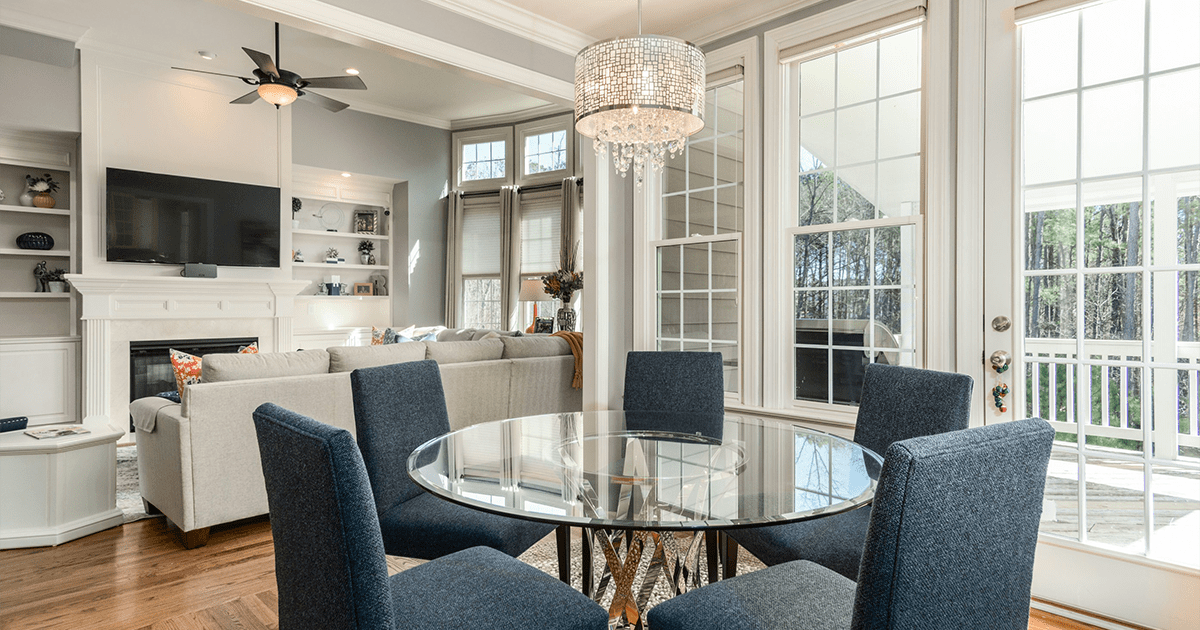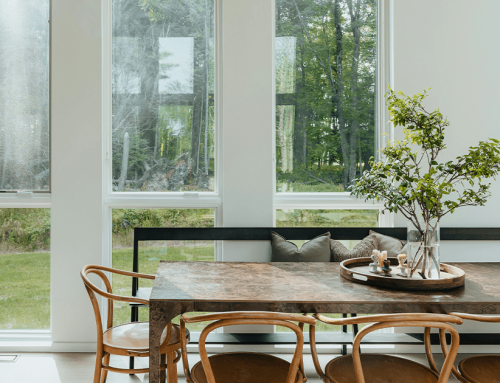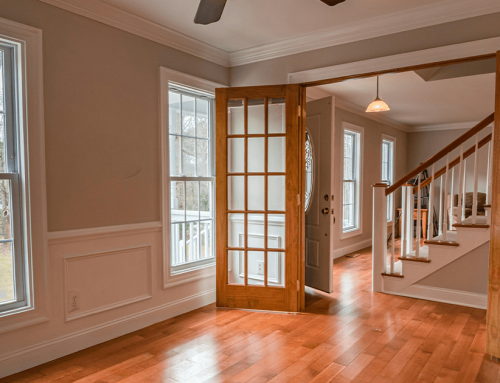Understanding the Best Window Materials for Your Home
When it’s time to upgrade your home’s windows, the sheer number of choices can feel overwhelming. From style and energy efficiency to durability and cost, every factor matters. One of the most important decisions you’ll make is which material is right for your needs. Vinyl, wood, and aluminum windows each offer unique benefits—and potential drawbacks.
In this guide, we’ll break down the pros and cons of each option so you can confidently select the best window materials for your home.
Why Your Window Material Matters
Choosing a window isn’t just about appearance—it’s about function, longevity, energy savings, and return on investment.
Here’s why the material you choose is so important:
- Energy Efficiency: Materials impact how well your windows keep heat in during winter and out during summer.
- Maintenance: Some window materials require more upkeep than others.
- Cost: Budget considerations often depend heavily on the material.
- Durability: Your windows need to stand up to Pittsburgh’s weather year after year.
- Aesthetics: Different materials offer unique looks that complement different home styles.
Selecting the right material can significantly boost your home’s comfort, efficiency, and value.
Vinyl Windows
What Are Vinyl Windows?
Vinyl windows are made from PVC (polyvinyl chloride), a highly durable plastic material. They first gained popularity in the 1970s and are now one of the most commonly used window types across the United States.
Pros of Vinyl Windows
- Energy Efficiency: Vinyl windows typically offer excellent insulation properties. Many are designed with multi-chambered frames that trap air and reduce heat transfer.
- Affordability: Vinyl is one of the most budget-friendly window materials, making it ideal for large window replacement projects.
- Low Maintenance: They don’t need painting, staining, or refinishing. Cleaning vinyl frames is as simple as wiping them down.
- Durability: Vinyl resists moisture, warping, and insect damage, making it a smart choice for humid or rainy climates.
- Variety of Styles: Today’s vinyl windows come in many colors, finishes, and styles to suit nearly any home design.
Cons of Vinyl Windows
- Less Customization: While there are many options, custom colors and shapes can be limited compared to wood.
- Expansion and Contraction: In extreme temperatures, vinyl can expand and contract slightly, which may affect long-term performance if poorly manufactured.
- Environmental Impact: PVC production is not the most eco-friendly process, though many manufacturers now offer more sustainable options.
Wood Windows
What Are Wood Windows?
Wood windows are the classic choice, valued for their natural beauty, warmth, and timeless appeal. They have been used in homes for centuries and continue to be a favorite for historical renovations and upscale properties.
Pros of Wood Windows
- Unmatched Aesthetics: Nothing matches the elegance and charm of real wood. It adds character and richness to a home’s architecture.
- Excellent Insulation: Wood is a natural insulator, providing superior energy efficiency compared to other materials.
- Highly Customizable: You can easily paint or stain wood windows to fit your home’s style—and change the look later if desired.
- Longevity: When properly maintained, wood windows can last decades, even outlasting other materials.
Cons of Wood Windows
- Maintenance-Intensive: Wood windows require regular painting or sealing to protect against moisture, rot, and insects.
- Higher Cost: Wood tends to be significantly more expensive than vinyl or aluminum, both in materials and installation.
- Susceptibility to Moisture: Without proper care, wood can warp, rot, or swell—especially in humid climates like Pittsburgh.
- Potential for Pests: Termites and other insects are more likely to target wood frames if not treated regularly.
Aluminum Windows
What Are Aluminum Windows?
Aluminum windows are constructed with lightweight, corrosion-resistant metal frames. They gained popularity in mid-century modern architecture and continue to be used in both residential and commercial settings.
Pros of Aluminum Windows
- Strength and Durability: Aluminum window frames are extremely strong, allowing for slimmer profiles and larger panes of glass.
- Modern Aesthetic: Their sleek, minimalist design fits perfectly with contemporary or industrial-style homes.
- Low Maintenance: Aluminum resists weathering and does not require frequent repainting or sealing.
- Affordability: While often more expensive than vinyl, aluminum is generally less costly than wood.
Cons of Aluminum Windows
- Poor Insulation: Metal conducts heat and cold more easily than wood or vinyl, making aluminum windows less energy efficient unless they have a thermal break.
- Condensation Issues: Aluminum windows can sometimes collect condensation, leading to potential moisture problems if not properly installed.
- Corrosion Risk: Although resistant, aluminum can still corrode over time in coastal or high-humidity areas without the right protective treatments.
Comparing Vinyl, Wood, and Aluminum Windows: Which Is Best?
When choosing the best window materials for your home, it helps to compare them side-by-side based on key factors:
Energy Efficiency
- Vinyl: High energy efficiency with multi-chambered frames that minimize heat transfer.
- Wood: Very high energy efficiency due to wood’s natural insulating properties.
- Aluminum: Moderate energy efficiency unless upgraded with a thermal break.
Maintenance
- Vinyl: Very low maintenance; no painting or staining required.
- Wood: High maintenance; requires regular sealing or painting to prevent rot and insect damage.
- Aluminum: Low maintenance; resists weathering and doesn’t need frequent upkeep.
Durability
- Vinyl: Highly durable, but can expand and contract in extreme temperatures.
- Wood: Extremely durable when properly maintained; vulnerable to moisture without upkeep.
- Aluminum: Very durable and strong, ideal for large window designs.
Aesthetic Appeal
- Vinyl: Good range of styles and colors; modern improvements have made vinyl more visually appealing.
- Wood: Excellent aesthetic appeal; provides timeless warmth and character.
- Aluminum: Sleek and modern; ideal for contemporary or industrial design preferences.
Cost
- Vinyl: Typically the most affordable option.
- Wood: The most expensive upfront investment.
- Aluminum: Moderately priced between vinyl and wood options.
Key Considerations When Choosing the Best Window Material
1. Your Home’s Style
- Historic or Traditional Homes: Wood windows are often the preferred choice for maintaining architectural authenticity.
- Modern or Industrial Designs: Aluminum’s sleek, clean lines work best for contemporary homes.
- Versatile Styles: Vinyl windows come in many styles and colors to fit a wide range of designs affordably.
2. Budget and Long-Term Value
- Vinyl is the best choice for budget-conscious homeowners looking for excellent energy efficiency at a lower price point.
- Wood offers unmatched beauty but comes with higher upfront and maintenance costs.
- Aluminum can strike a balance between strength and price but may need extra considerations for energy savings.
3. Maintenance Commitment
Ask yourself: How much maintenance are you willing to do?
- If you want a low-maintenance option, vinyl or aluminum windows are smart choices.
- If you don’t mind periodic sanding, painting, and sealing, wood windows offer exceptional character and durability.
4. Climate Considerations
- Pittsburgh homeowners deal with humid summers, cold winters, and plenty of moisture.
- Vinyl stands up well to moisture and temperature swings.
- Wood can thrive with proper maintenance but needs protection from the elements.
- Aluminum is durable but may be less energy-efficient unless upgraded with thermal breaks.
5. Energy Efficiency Goals
If reducing your energy bills is a top priority:
- Wood offers the best natural insulation.
- Vinyl windows offer excellent efficiency when properly installed.
- Aluminum typically needs special design considerations (thermal breaks or added insulation) to compete.
How to Choose the Right Windows for Your Home
Choosing the best window materials isn’t a one-size-fits-all decision.
Here’s a quick How-To checklist to guide you:
✅ Assess Your Priorities
Is your focus on aesthetics, budget, energy savings, or low maintenance?
✅ Consider Your Climate
Choose a material suited to Pittsburgh’s weather conditions.
✅ Match Your Home’s Style
Select windows that complement your architecture.
✅ Think Long-Term
Factor in both initial investment and long-term care.
✅ Work with a Trusted Expert
Choose a reputable local company that understands window installation for your region’s climate and building standards.
Ready to Upgrade? Superior Window Can Help You Choose the Best Window Materials!
Choosing between vinyl, wood, and aluminum windows is a big decision—but you don’t have to navigate it alone. The experts at Superior Window are here to guide you every step of the way. We’ll help you find the perfect combination of style, performance, and value to fit your home’s needs.
Whether you’re replacing a few windows or planning a full home upgrade, our experienced team is ready to help you make the best choice for lasting beauty and energy savings.
Contact Superior Window today to schedule your consultation and find the best window material for your home!




